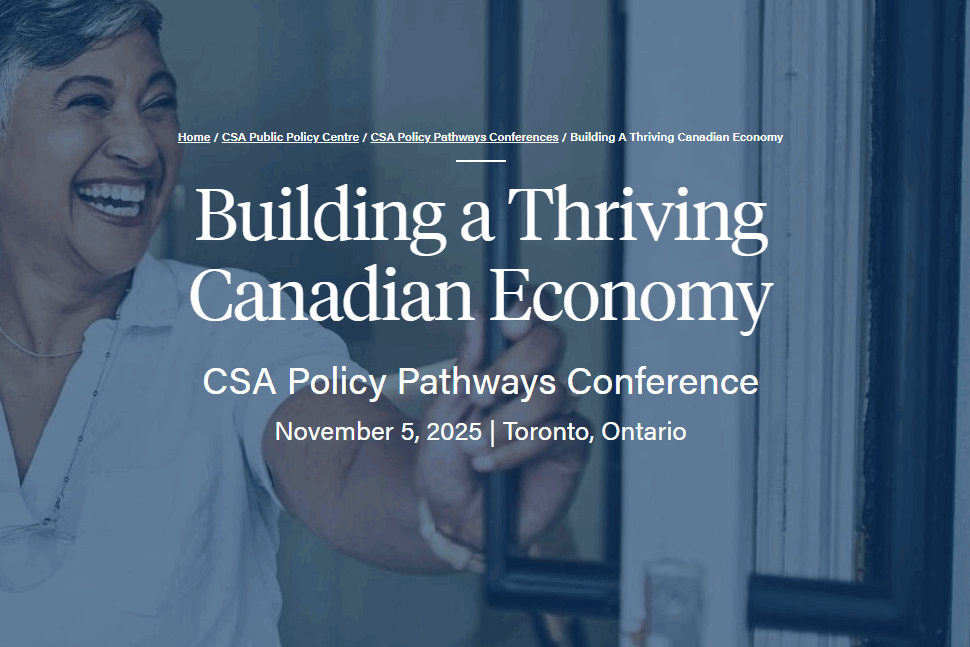Reflections on Budget 2025: Economic growth alone won’t save us
In this reflection on Budget 2025, SCP CEO Matthew Mendelsohn explains that we really like the Budget’s focus on industrial strategy, some tentative steps on making more capital available to a wider diversity of Canadians and commitments to loosen the grip that our oligopolistic sectors have over our economy. However, we are concerned by the lack of a strategic approach to providing more working people and young people a path to wealth, ownership and economic security. While the Budget responds to the wish list that corporate Canada has articulated for several years, there are no guarantees that they will indeed step up to invest—or that those investments will produce growth that benefits working people and communities.
Budget 2025 did not extend the $10M capital-gains exemption for sales through EOTs
We share the disappointment felt across Canada’s business and advisory community that Budget 2025 did not make the $10 million capital gains exemption for sales through Employee Ownership Trusts (EOTs) a permanent feature of Canada’s tax system. The current incentive, passed only in 2024 with an expiry set for December 2026, means that the business community has not had adequate time to act on this opportunity or build adequate momentum for this promising succession model. In this statement, Employee Ownership Canada responds to the Budget and reaffirms its strong commitment to working with government and partners to make the capital gains exemption permanent, ensuring employee ownership trusts remain a viable, long-term option for Canadian businesses.
November 7, 2025Alternative ownership,Changing narratives,Blog,Employee Ownership Canada (EOC)Economic policy,The Ownership Solution
FAQs on Budget 2025 and the future of Employee Ownership Trusts (EOTs) in Canada
There is some confusion out there about Budget 2025 and employee ownership trusts (EOTs). To confirm, the federal government did not extend the $10M capital-gains exemption for sales through EOTs, in the budget released on Tuesday, November 4, 2025. Because the sale of a business to an EOT is a process that often takes more than a year, certainty on the rules is essential for owners, advisors and employees planning succession. In this FAQ, Employee Ownership Canada answers key questions about what’s enacted now, why the incentive matters for uptake and how the sector, businesses and the organization are moving forward from the Budget news.
November 6, 2025Alternative ownership,Changing narratives,Blog,Employee Ownership Canada (EOC)Economic policy,Explainer,The Ownership Solution
Codetermination and upskilling in the age of AI
So much uncertainty surrounding AI and its impact on jobs has many Canadian workers asking themselves, “who’s next?” With 60% of Canadian workers in roles at risk of AI-driven job transformations, business and political leaders are champing at the bit to automate workforces. As Danny Parys writes, with so many livelihoods at stake, it’s clear that the Canadian economy needs to make bold changes, such as taking a page from many European countries' books and building employee consultation into their governance models. Codetermination could not only help ensure that the productivity gains of AI and automation are realized, but that workers are consulted first.
Could increased employee ownership restore confidence in Canada’s economy? | The Hub
As companies consolidate under ever larger pools of private capital, there’s growing unease around who’s actually benefiting from corporate growth. Falice Chin writes in The Hub that it’s no coincidence, then, that voices across the political spectrum are now revisiting models of employee ownership as a potential antidote to widening wealth inequality, fading community ties and a growing distrust in capitalism itself. This deep-dive looks at how employee ownership trusts, or EOTs, could be an elegant policy remedy to a crisis of confidence in the modern economy.
November 4, 2025Alternative ownership,Changing narratives,Employee Ownership Canada (EOC),Economic policyIn the media,The Ownership Solution
Elbows up: A practical program for Canadian sovereignty | Report
Canada can’t become a sovereign country by doing the same old things, explains a new compendium of essays co-sponsored by the CCPA, the Centre for Future Work and several national civil society organizations. Elbows Up: A Practical Program for Canadian Sovereignty is a response to corporate rallying cries responding to Donald Trump with a familiar playbook: deregulation, austerity, tax cuts and fossil fuel expansion. The collection includes contributions from 20 progressive economists and policy experts, including SCP CEO Matthew Mendelsohn and others who participated in the Elbows Up Economic Summit held in September 2025 in Ottawa.
What’s wrong with mainstream economics?
Mainstream, or “neoclassical,” economics still dominates how we teach, study and understand our economy, even though much of it doesn’t match reality. In this piece, economists Louis-Philippe Rochon and Guillaume Vallet explain why outdated economic ideas persist and how they can lead to harmful policies. They challenge five common myths about inflation, growth and inequality, showing that today’s economy is driven more by power and institutions than by perfect markets. As "heterodox" economists, they argue it's time for a new kind of economics that reflects how the real world actually works.
Building a thriving economy: CSA Policy Pathways Conference
The CSA Policy Pathways Conference convenes leaders, thinkers and changemakers across government, business, community and academia to confront the pressing questions shaping our economic future. How can we build resilience in the face of global uncertainty? What will it take to unlock innovation and ensure its benefits are broadly shared? How do we design policies that promote competition, inclusion, and financial security? Join us on November 5, 2025, in Toronto, as we explore how we can take bolder steps toward a more resilient, innovative and equitable economic future.
October 26, 2025Upcoming eventChanging narratives,Economic policy,The Ownership Solution
Creativity could be collateral damage of U.S. film tariff
When U.S. tariffs threaten to strike creativity and culture, we can't afford to stay quiet. SCP Fellow and POV executive director Biju Pappachan explores the implications of the U.S. imposing a tariff on foreign-made films and explains why this is the moment for Canada to stand up for its filmmakers, crews and cultural sovereignty. Film and television are not luxuries; cultural production is a strategic sector that delivers exports, jobs and soft power. Just as we negotiate for agricultural or industrial tariff exemptions, cultural production deserves equal protection.
October 21, 2025Changing narratives,Blog,Economic policyLabour & skills,Opinion,In the media
Hype or help? Can crypto and stablecoins solve economic inequality?
Some cryptocurrency advocates are promoting the use of stablecoins as a common currency, arguing that this new currency could help the cost-of-living crisis and promote economic equality – particularly for young people. Law professor, money expert and SCP Fellow Dan Rohde is not convinced that crypto can help address economic inequality. In this explainer, he breaks down what stablecoins are and aren’t, and how to think critically about their promises.









